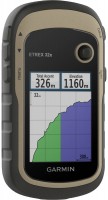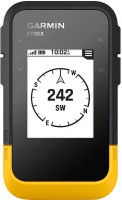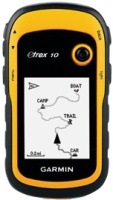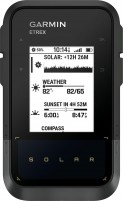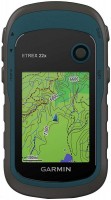Garmin eTrex 20
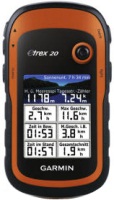 | Outdated Product £348.83 Pocket GPS navigator with support for the Russian GLONASS navigation system. While unlikely, this feature could come in handy in the event of a glitch in the US GPS system. The device is made in a completely waterproof case, so that it can be used even during rain and even dropped into puddles. Powered by a set of 2 AA batteries, it will last for 25 hours. You can use the USB interface to update maps. |
Garmin eTrex 20
Type:handheld
Screen size:2.2 "
Resolution:176x220 px
Power supply:non chargeable battery
Working hours:up to 25 h
Weight:142 g
Pocket GPS navigator with support for the Russian GLONASS navigation system. While unlikely, this feature could come in handy in the event of a glitch in the US GPS system. The device is made in a completely waterproof case, so that it can be used even during rain and even dropped into puddles. Powered by a set of 2 AA batteries, it will last for 25 hours. You can use the USB interface to update maps.
All specifications
Specifications eTrex 20
|
| |||||||||||||||||||||||||||||||||||||||||||||||||||||||||||||||
The information in the model description is for reference purposes.
Always clarify the specifications and configuration of the product with the online store manager before purchasing.
Catalog Garmin 2025 - new arrivals, bestsellers, and the most relevant models Garmin.
Always clarify the specifications and configuration of the product with the online store manager before purchasing.
Catalog Garmin 2025 - new arrivals, bestsellers, and the most relevant models Garmin.
Additional features sat nav Garmin eTrex 20:
WAAS technology
WAAS (Wide Area Augmentation System) is a system designed to increase the accuracy of satellite navigation instruments. The principle of operation of the system is based on the correction of satellite data using special corrections, which are calculated by base stations installed in the service area of the system.
- WAAS technology
- Photo navigation
- Lunar and solar calendar
- Area calculation
WAAS technology
WAAS (Wide Area Augmentation System) is a system designed to increase the accuracy of satellite navigation instruments. The principle of operation of the system is based on the correction of satellite data using special corrections, which are calculated by base stations installed in the service area of the system.



